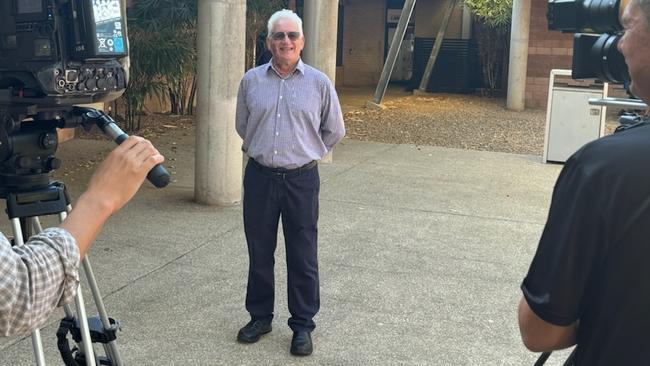Vatskalis demands election pledges to end local government funding squeeze
Local Government in the Territory is being squeezed by funding shortfalls and a lack of transparency. Read what’s wrong.
Northern Territory
Don't miss out on the headlines from Northern Territory. Followed categories will be added to My News.
Squeezed financially by the policies of both major political parties, the organisation representing local government in the Northern Territory has called for transparency from Labor and the CLP about their plans for the sector after August 24.
Local Government Association NT president Kon Vatskalis said Labor’s proposal to establish first nations governments as part of the Treaty process and the CLP’s promise to reintroduce community council-style regional shires required further explanation.
All 16 Territory local government areas affiliated with LGANT – City of Palmerston sits outside the organisation – backed Mr Vatskalis’ call for clarity around the future of the sector post this month’s election.
“Local government leaders across the NT are deeply concerned about the future of the sector, particularly regional councils,” Mr Vatskalis said.
“Labor and the CLP must inform the people of the NT about their plans so that voters can make informed decisions in the upcoming election.

“The NT Government has slowly been squeezing councils, particularly regional councils, by reducing funding and restricting revenue.”
LGANT gave six examples of funding and revenue reductions imposed by Labor including a multimillion-dollar funding shortfall in the de-amalgamation of Groote Eylandt Regional Council from East Arnhem Regional Council, reduced revenue through rate exemptions for non-profit organisation and reduced revenue through contract restrictions and grant preferencing.
He also targeted the local decision making policy, decreased budget allocations and local government’s exclusion from decision-making around the $4bn NTG-Commonwealth remote housing initiative.
Mr Vatskalis said Labor had failed to consult with local government around its plans to replace regional councils with First Nation Governments, as recommended in the Treaty Commission report.
He also mocked the Labor Government’s local decision making policy for undermining local government, pointing out 89 per cent of elected members in regional councils were Indigenous and that interstate Aboriginal organisations were winning NT contracts that local governments were unable to tender for, despite high rates of Aboriginal employment.
For its part, he said the CLP had provided zero detail around its plans to reintroduce a limited community councils model to the Northern Territory.
“Let’s stop talking about de-amalgamation,” he said.
“We tried it before and it’s not going to work for the simple reason there’s not enough money to go around to support all the councils to become viable.
“Let’s stop talking about replacing democratically elected Indigenous people with a new form of first nations government in remote areas. Local Government currently works very well in the Northern Territory despite the difficulties and despite the reduced funding.
“But if we really want an effective, functional local government in the Northern Territory, it has to be supported by both parties.”
Chief Minister Eva Lawler said her government would retain elected regional councils and Opposition Leader Lia Finocchiaro said she had made clear to LGANT a CLP Government would “totally” reform the delivery of local government in the NT.





